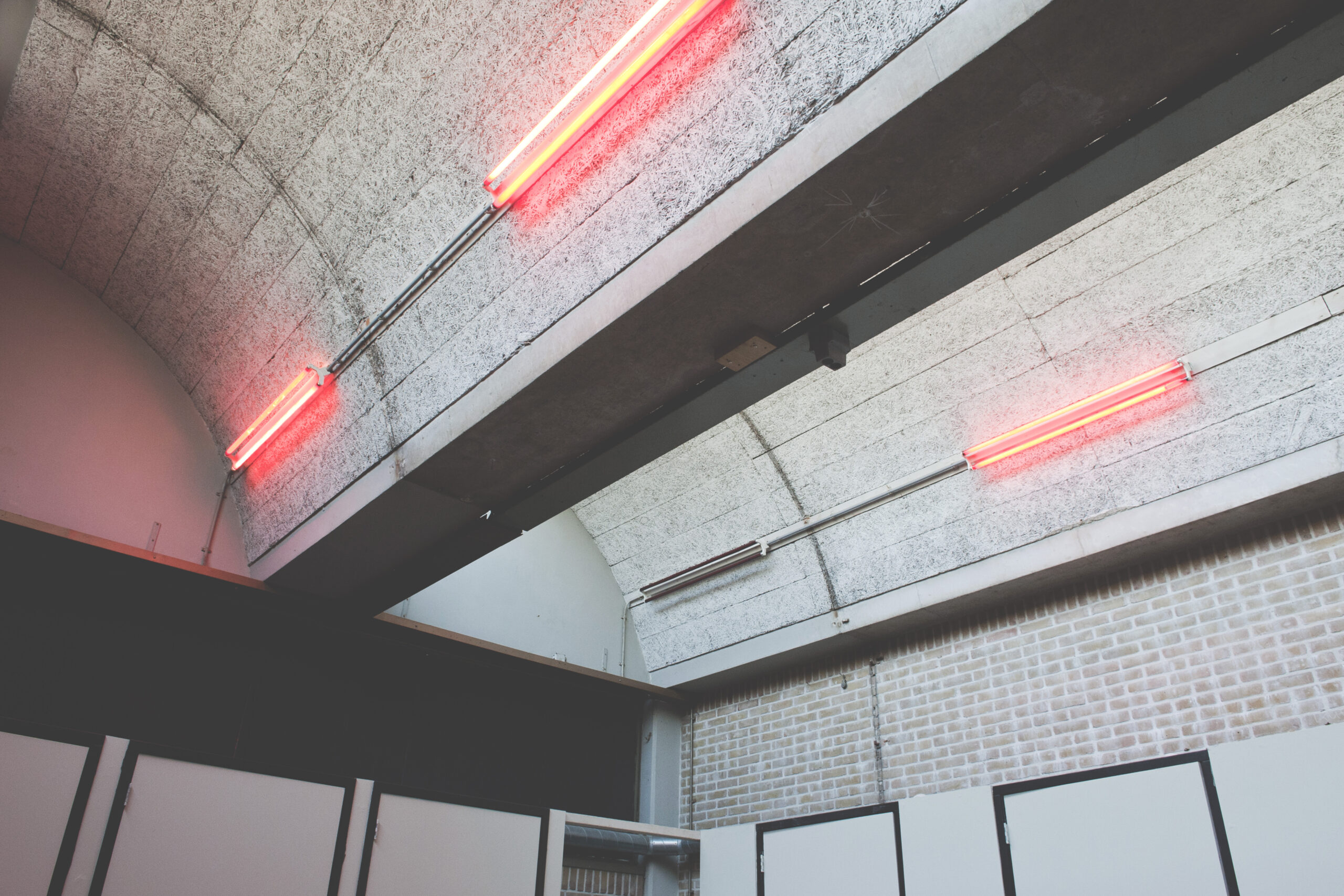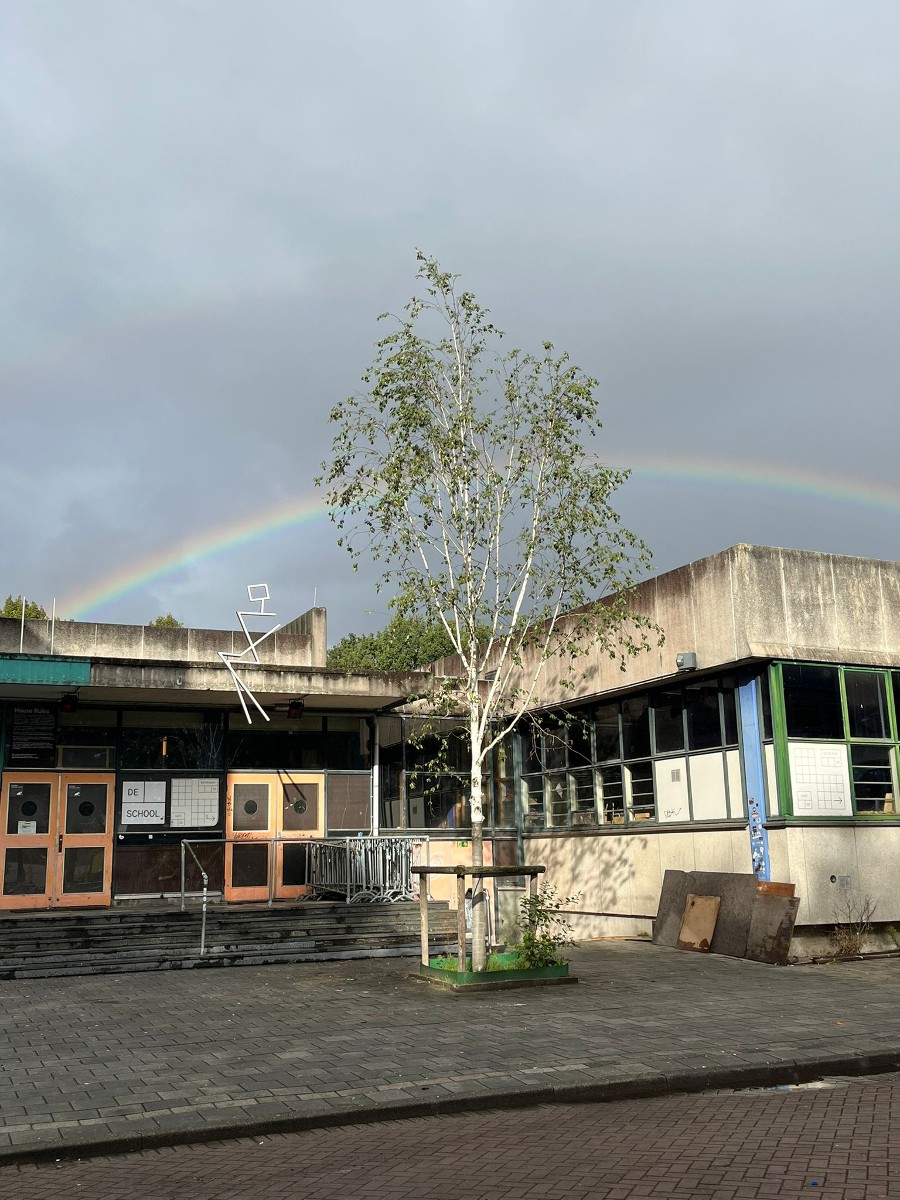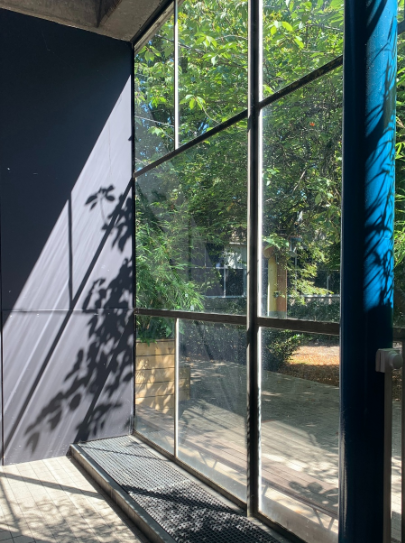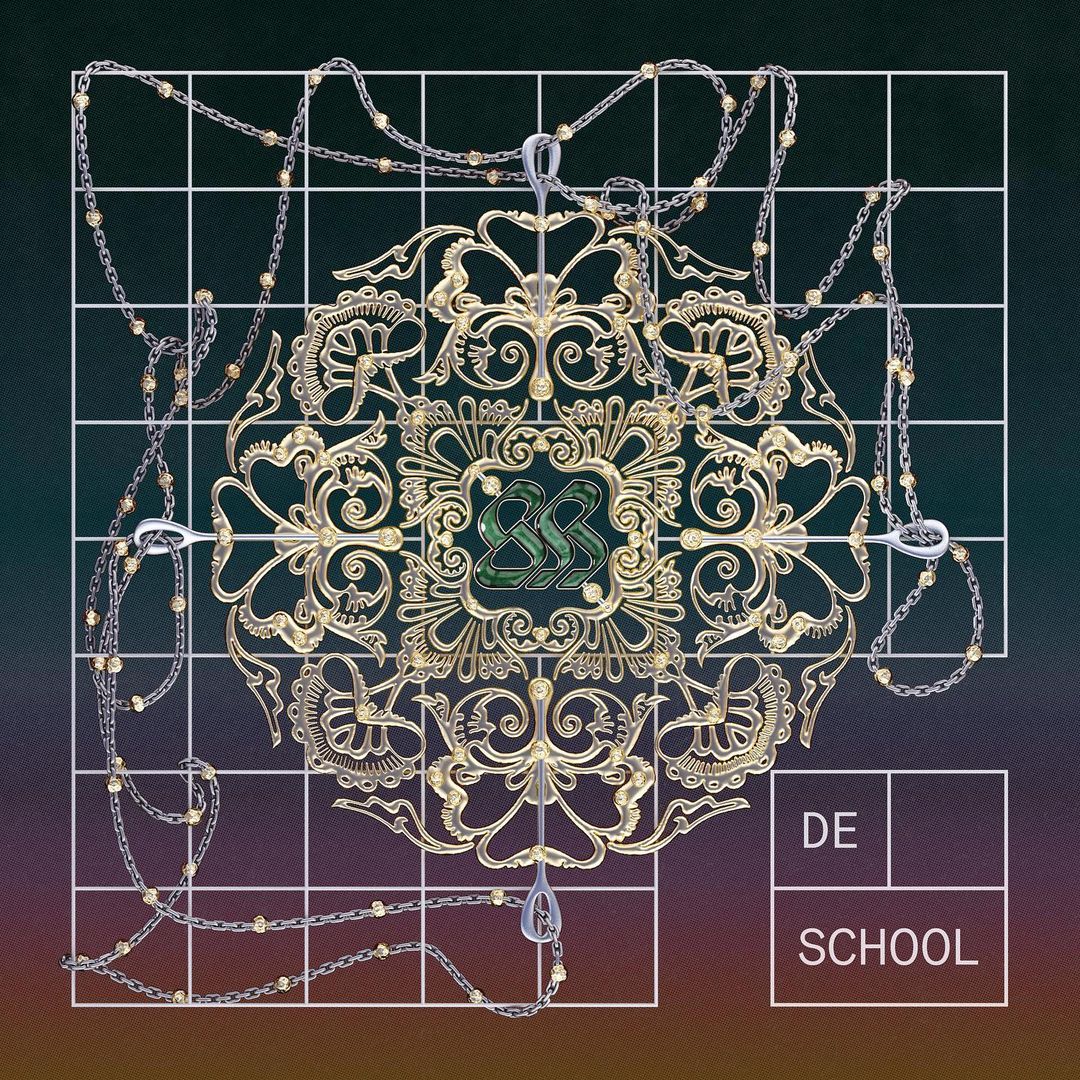Rave politics, synergies in their relationship and future ambitions

Last week, the tickets to SPIELRAUM and De School’s exhilarating forthcoming collaboration sold out within a matter of minutes. Both platforms have become cultural institutions, striving toward providing a sanctum for the Queer community. After the club’s re-opening last month, the aphotic event space once again is perpetuating the depths of sound; a perfect location to get lost in utopic dance frequencies. SPIELRAUM’s iconic Queer parties’ have been hailing an inclusive dancefloor since 2017, so this holy union is the opportunity Amsterdam has been waiting for!
SPIELRAUM will be one of several collectives in residence at De School, as the institution will be sharing its platform with upcoming talent in the shape of club nights, art programmes and informative talks. SPIELRAUM, being one of the first, marks this new beggining. Having previously struggled to find a club space in Amsterdam (and one capable of growing along with their ambitions), “creating a space for the LGBTQIA+ community is such a precious task”, they state — this fusion is one of growth, victory and peace.
The collaboration between both parties is set to be ‘sustainable and long term’, with Sasha Ojeda Mendoza, (Creative Head at De School) letting us know, “this is going to be a commitment in which both parties will work to elevate and strengthen each other”. Knowing the importance of such a collaboration, she continues, “SPIELRAUM has in the past years truly established themselves as a core part of the Amsterdam scene; they’ve worked tirelessly to get to where they, deservedly, are now.”
In this coming together, Glamcult spoke to Sasha, alongside Sven and Diego (the iconic founders of SPIELRAUM) to find out more about their motivations for this residency, what they hope to achieve together, and how LGBTQIA+ spaces can best be preserved.
Can you tell us what the ‘Collectives in Residence’ means to De School?
DS: De School reopening its doors is something that I didn’t see happening for a long time… and I think a large part of Amsterdam is with me on that. Working together with the scene to rebuild this platform seems logical. There is also a responsibility that comes with having a space as we do. There is a huge amount of organisations, promoters, artists and initiatives that are always jumping from one venue to the other, continuously looking for space to showcase and build on their concepts or simply bring their communities together. A collective in residency is an idea that leaves room for an initiative to grow in their collaboration with us… as we will too! We’re not just a home for another collective, but will work and programme together. But mainly welcome them and their artists and crowd in as part of us, not just as guests.
SPIELRAUM was announced as the first resident at De School, how does the collective’s philosophy synthesize with yours?
DS: Spielraum has been a part of Amsterdam nightlife for a while. They have shaped a lot of parties we see today and brought something (back) that had been lost here for years. Their musical and artistic philosophy has grown over the years… I think if you look at what DS has put out since we opened you can see we are not trying to fit in. I think we have a similar way of thinking.
How do you think collaborating with SPIELRAUM will help strengthen De School?
DS: I think Spielraum say best: It is also important for De School that the Queer community we bring along will finally feel at home in the club and not just as guests.
Can you tell us about the roots of SPIELRAUM, what inspired you to create this collective, and when did it begin?
SPIELRAUM: In 2017 we started SPIELRAUM because we felt there was a lack of parties that had proper lineups with really good electronic music. Back then we mostly focused on techno, whereas now we really book a broader range of genres. But we were also frustrated that there simply weren’t enough parties for us and our friends. We regularly went to Queer parties in Berlin and felt Amsterdam really needed parties like that. We always went to IsBurning, Carlos Valdes’ party, so we knew the crowd was there and that people were eager to go to Queer parties more often.
And on a logistical level? How did you make it happen?
We were already working with other promoters and got the chance to start our own party at Radion. We specifically wanted SR to be a Queer party because we didn’t want to have a party just for gay men. The party gradually grew in popularity and with that growth, we realised that with using the term “Queer”, comes a certain responsibility. So over time, we decided we needed to take action to make sure our party stayed as safe as possible and to make sure the audience stayed diverse, by creating an awareness team or posting about consent on the dance floor. But also by creating diversity in our lineups consisting of more women, trans and non-binary people and more artists of colour.


De School is such a beautiful club space, could you tell us a bit more about your experience with the venue, and how you feel collaborating with De School is synonymous with the future ambitions of SPIELRAUM?
SPIELRAUM: In our eyes, you need to be able to get lost in a good nightclub. You need to be able to go on an adventure and to discover new rooms, corners and places and wander for hours. De School really has all that and a little more. The late 60’s architecture makes it such a characteristic building. And besides that adventurous aspect, it’s also a super versatile building, which is perfect for musical diversity and also lets us approach SPIELRAUM in a more substantive way.
It is creating almost a SPIELRAUM wonderland…
This collaboration really gives us the opportunity to let SPIELRAUM finally reach full maturity. Next to club nights we’ll also be able to organise artistic side-programmes, info nights, video screenings, concerts and much more. All themed around Queerness, LGBTQIA+ topics, but also safety and care. It will be the perfect place to let SPIELRAUM flourish and we can finally go into the depths where we’ve wanted to go for so long. That’s also why this collaboration will be approached as a “collective-in-residency”, much like an artist residency at a museum or cultural institution. Spielraum will move in with De School and together we’ll be working hand in hand to uplift and support each other.
Historically, the rave scene has fostered a safe space for Queer communities. Why do you think the Queer scene has for so long found a sanctum in the rave and club scene?
SPIELRAUM: Because it turns out over and over again, that in most public spaces we are simply not safe. It’s so important to have spaces where, for once, you can finally be and express yourself without being judged, spat on or violently attacked. So in a sense, it really has to do with escapism. Somehow escapism is oftentimes associated with decadence, in a sense that most people see it as a way to escape from the daily grind. But for most marginalised communities, escapism is necessary to be able to really express themselves. Club spaces have historically played a crucial role in this and have always been places where these communities were given the chance to indulge in self-expression in many different ways. This is also why clubs have been the foundation of many (new) art and music forms/genres and to this day still are places for artists to explore freely.

How do you think we can, to the best of our abilities, preserve a safe space for the Queer community; regarding this, what are some of the biggest obstacles the community has faced?
SPIELRAUM: It’s impossible to create a space that is truly safe. Something can always happen and mistakes are always made. So we think it’s important to not try to be completely safe or act as if you can be that. You have to stay true to yourself and listen to people’s needs and keep adapting all the time. It really takes a lot of work. We noticed a lot of “safe space lingo” is subject to devaluation. In a sense that many places brand themselves as safe spaces while they have no idea what that actually means or what it takes.
Why do you think raving is so inherently political? Especially within the Queer community.
SPIELRAUM: Because being Queer is a political act. For Queer people, trans people and even more so trans people of colour, merely existing can be dangerous and our bodies, behaviour and culture are constantly being politicised. We as SPIELRAUM cannot speak on behalf of an entire community, but we can speak on behalf of our party.
And for SPIELRAUM?
We are quite vocal about being a Queer party and that we prioritise people from the LGBTQIA+ community. This always brings up discussions about inclusion and exclusion. But we need to take a clear stance, we need to make sure this party remains a space for our community. And whether we want it or not, this will always be political.
De School x SPIELRAUM
ADE, Thursday 20th of October
Images courtesy of De School
Words by Charlotte Hingley
Notifications